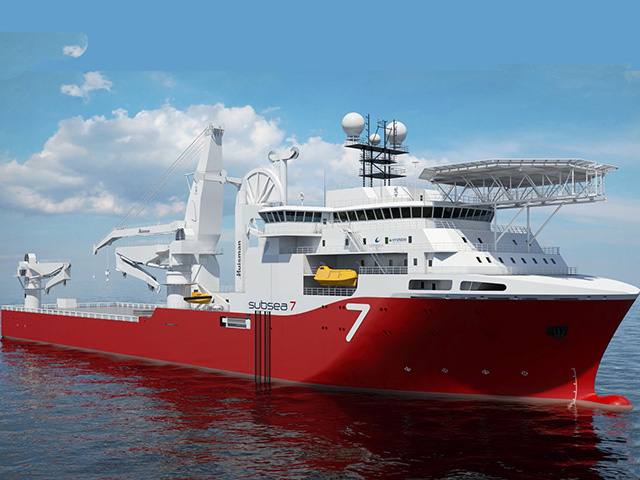
Subsea 7 share spiked amid rumours of a merger with US service giant Baker Hughes.
Reuters news agency cites a Wall Street Journal report, which quoted anonymous sources.
It was claimed that talks broke down over a price for the reported takeover.
Subsea 7 said it was aware of the media speculation and share price movement but had a policy of not commenting on “rumours”.
the share price spiked on Thursday morning around 10am at $17.43.
By market close yesterday it had leveled off at $17.07, up 0.06%.
In a statement Subsea 7 said it the company was “aware” of press speculation and “subsequent share price movement”.
The statement went on: “The company has a policy not to comment on speculation or rumours.”
Baker Hughes share price has been steadily falling since October 6.
As of 4.40pm yesterday the NYSE listed share price was at $34.05, down 0.99%.
Work on the Beatrice wind farm project in the outer Moray Firth helped Subsea 7 to a small upturn in profits in the second quarter of 2017.
Subsea 7 posted second quarter pre-tax profits of $206.2million (£158million), up 0.34% year-on-year.
Revenues jumped 6% year-on-year to £780million, meanwhile.
Subsea 7, which in the north and north-east employs about 1,000 people across operations in Westhill, near Aberdeen, and Wick, said it expected full-year 2017 revenues to be higher than last year’s total.
The Luxembourg-domiciled firm said that if crude prices hold at current levels and costs continue to come down, the number of contract awards could increase by the first half of 2018.
In the second quarter, revenues for the firm’s renewables and heavy lifting division soared to £250million from £1.5million a year earlier thanks mainly to its involvement in Beatrice.
Baker Hughes, which became part of the GE family earlier this year, did not respond to requests for comment on the purported talks with Subsea 7.
Growth was one of the key issues highlighted as facing Baker Hughes after the merger with GE.
The merger means the firm’s access to cash was improved but exposed 70% of the firm’s business outside of the US marketplace.
This led to the concern that it may be a slow growth.
Consulting firm Deloitte said the oil field service companies that weathered the crash in crude prices the best had operations across the globe with deep technological capabilities and business in various sectors — both onshore and offshore.
Recommended for you
